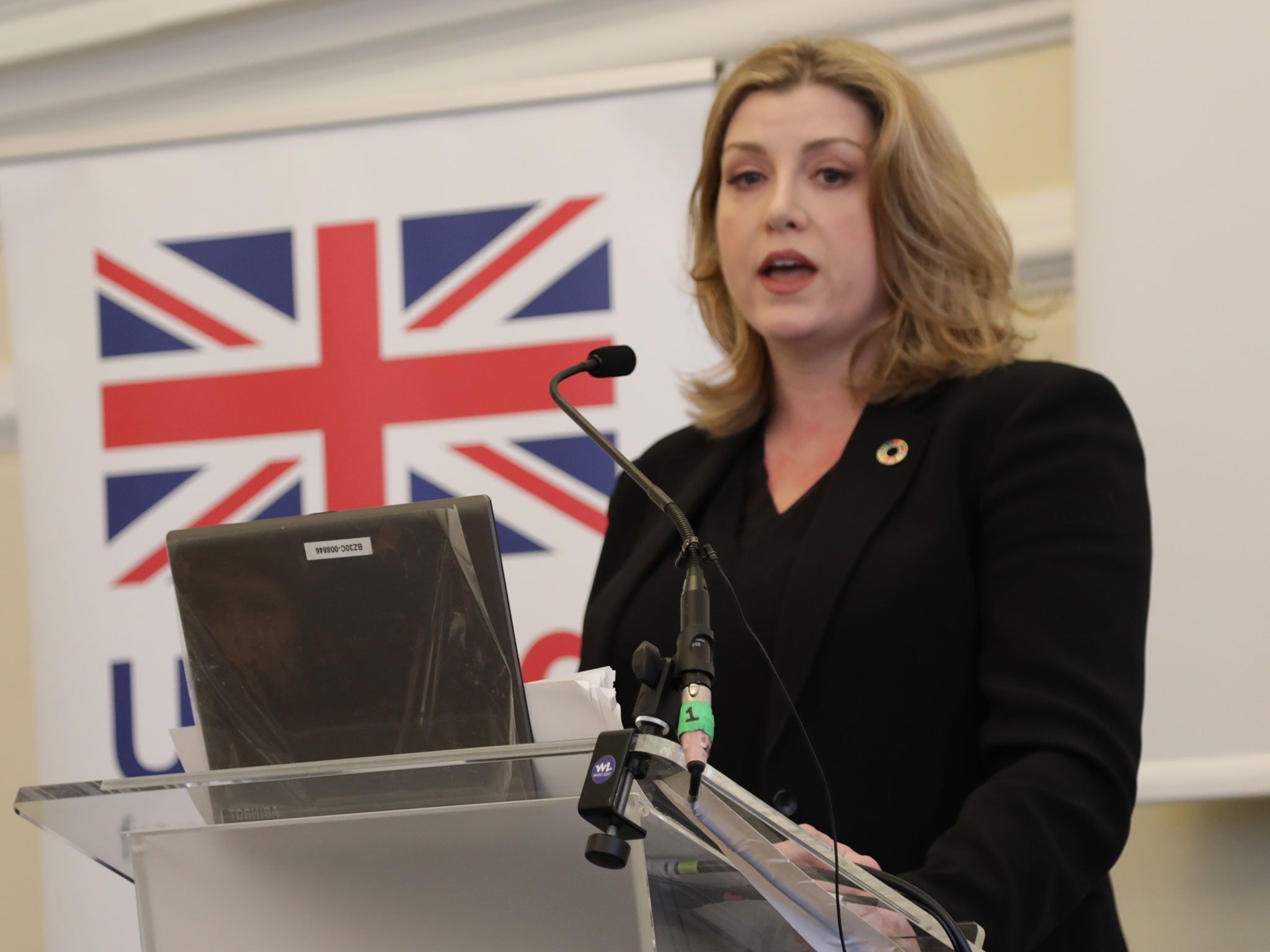Penny Mordaunt outlines new approach to foreign aid spending telling those with concerns: 'I hear you'
International development secretary plans to push British exporters and pension funds to invest in the developing world

International development secretary Penny Mordaunt has outlined a new approach to her department’s foreign aid spending as she told those who had concerns: “I hear you.”
Ms Mordant said her department’s strategy will now include a new partnership with the City of London to “bring down the barriers to trade” and unlock investment for emerging markets in Africa and Asia.
In her first major speech on Britain’s overseas aid budget since taking over the role at the end of last year, Ms Mordaunt also offered a passionate defence of the £13.9bn budget.
Her speech in central London follows several months of high-level scrutiny over the department’s spending after scandals that rocked the charitable sector, including allegations of sexual abuse by aid workers in developing countries.
It also comes after the prominent Conservative MP Jacob Rees-Mogg delivered a petition to Downing Street telling the Prime Minister that the 0.7 per cent target was “economically illiterate” and said protecting the budget continues to be a “costly mistake”.
Addressing criticisms of her department’s spending, she used the speech to describe UK aid as a “shield” against uncontrolled economic migration, pandemic disease, organised crime, poverty and terrorism.
Ms Mordaunt added that she had “listened” to critics of aid who claim the department is spending too much, that spending is wasted or that it goes “straight into the pockets of the corrupt”.
“I hear you,” she said. “I get it. I really do. You want a return to the priorities of the people. Not the priorities of the politicians. I understand that. That is one reason why I voted for Brexit.“
She attributed concern over aid spending not to a “lack of logic” or a “lack of love” but to a “lack of trust that were spending their money well”.
“That concern – a concern shared by 50 per cent of those polled on this issue – is one that we must address head on and not just because it’s their money we are spending,” she said.
Setting out a new approach to how the Department for International Development (DFID) delivers aid in Britain’s interest while fulfilling international obligations, Ms Mordaunt said her department plans to push British exporters and pension funds to invest in the developing world.
“Our work can create new opportunities for British pension funds to invest in new markets in developing countries and deliver higher returns for British pensioners,” she said.
“Last year, I instructed DFID to deepen its work with the Treasury and HMRC to enable developing countries to manage their tax collection better.
“And today I can announce a further unit focussed on business integrity, which will enable companies working in developing countries to place anti-corruption and human rights front and centre.”
Ms Mordaunt, who became DFID secretary in November following the dramatic resignation of Priti Patel, said that Britain’s foreign aid budget should be delivered in a way that “promotes and defends national interests efficiently”.
She continued: “It must deliver on both the core purpose of the Official Development Assistance (OECD targets) and also on the public’s concerns. Our new development offer needs to be a national mission we can unite behind.
“It should unashamedly have British values at its heart. And it should be fit for the world as it is today. We have a moral obligation to both the people we seek to help, and those who enable us to do so, to get the best value for money and most positive impact for every pound we spend.”
Responding to Ms Mordaunt’s speech, Mike Noyes, the acting director of policy and practice at the organisation Action Aid, said: “The secretary of state is right that UK aid reflects the best of British values – preventing poverty, helping those hit by humanitarian crises, and making the world more prosperous and stable.
“As she says, there is much still to do. Rights abuses continue, including violence against women and girls, while corruption and tax avoidance rob the poorest – most often women – of vital funds. Post-Brexit, UK trade and the global financial system must be made to help rather than hurt the poorest – it’s welcome that Penny Mordaunt has recognised this.”
Join our commenting forum
Join thought-provoking conversations, follow other Independent readers and see their replies
Comments
Bookmark popover
Removed from bookmarks